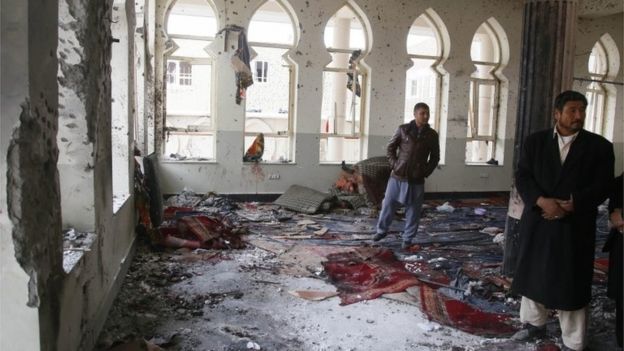
This article is more than
8 year oldA suicide attacker detonated a bomb hidden inside a tanker truck close to the heavily protected diplomatic area during the morning rush hour.
Some 400 people were injured by the blast, which left a deep crater.
No group has said it carried out the attack but Taliban militants denied being involved.
Recent bomb attacks in Kabul have been claimed either by the Taliban or so-called Islamic State (IS).
The bomb exploded close to the German embassy, where a number of staff were injured.
The German authorities postponed a deportation flight due to return failed Afghan asylum seekers, with a government source telling AFP news agency that diplomatic and consular staff had "more important things to do than to deal with organisational matters" so soon after the attack.
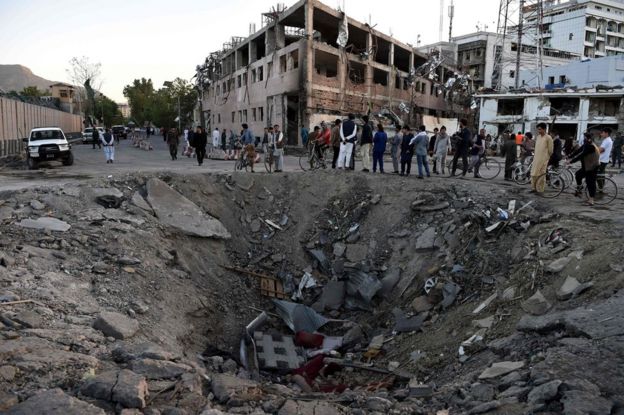
The bomb went off at about 08:20 local time (03:50 GMT) near Zanbaq Square, outside the Green Zone, Capt William Salvin, spokesman for Nato's Resolute Support Mission, told the BBC.
Reports vary as to the kind of vehicle used to deliver the bomb - either a water or sewage tanker.
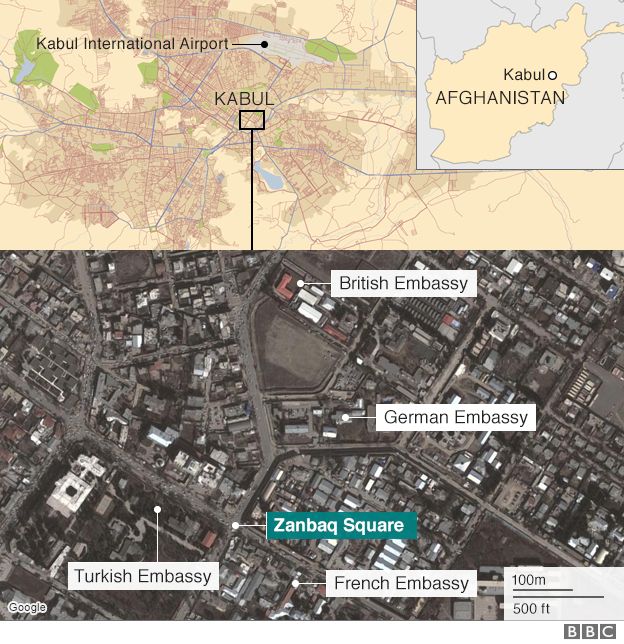
One Western diplomatic source told AFP news agency the blast had been caused by more than 1,500kg (3,307lb) of explosives.
The area is home to key buildings including embassies and the presidential palace.
More than 50 other vehicles were destroyed.
Many of the casualties appear to have been Afghan civilians on their way to work or school and office workers in nearby buildings.
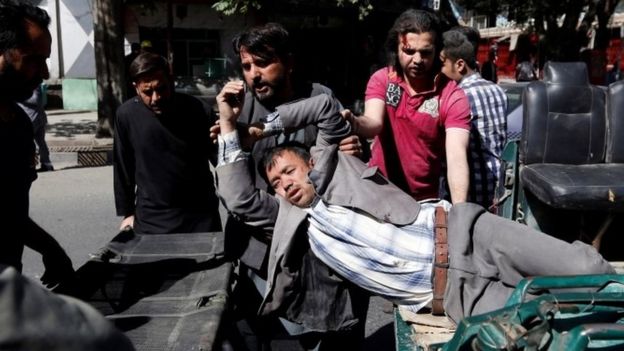
"I have never seen such a terrible explosion in my life," local shop owner Sayed Rahman told Reuters news agency after his store was badly damaged.
Another resident, Abdul Wahid, told the BBC the blast had been "like a heavy earthquake".
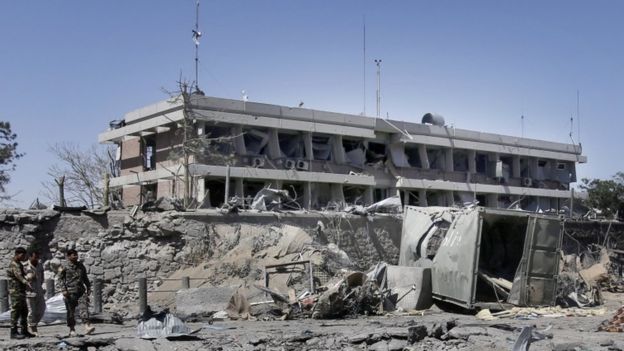
Several international and local sources have been reporting on casualties:

Francesca Unsworth, BBC World Service director: It is with great sadness that the BBC can confirm the death of BBC Afghan driver Mohammed Nazir following the vehicle bomb in Kabul earlier today, as he was driving journalist colleagues to the office. Mohammed Nazir worked as a driver for the BBC Afghan service for more than four years and was a popular colleague. He was in his late 30s and he leaves a young family. This is a devastating loss to the BBC and to Mohammed Nazir's friends and family.
Tony Hall, BBC director-general: Many of our staff face dangerous situations every day as they report from volatile areas around the world. It's testament to their bravery that we are able to provide trusted, impartial coverage - but consequences like this are devastating for us all. Our thoughts and prayers are with Mohammed's family and many friends at such a very sad time.
It appears not. AFP's source at the interior ministry said there would be no flights for a few days - but they would resume.
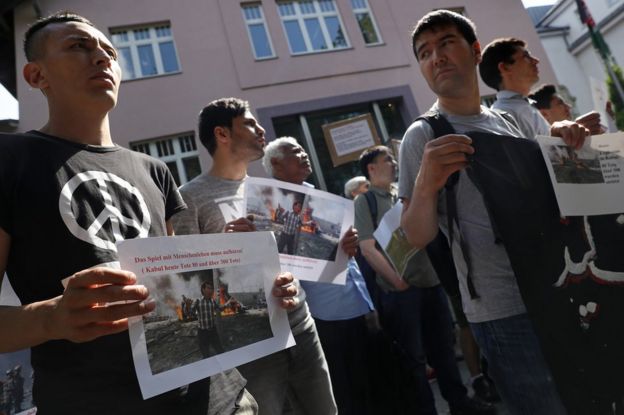
Germany argues Afghanistan is a safe country for failed asylum seekers to return to - unlike Syria, for example.
Chancellor Angela Merkel condemned Wednesday's bombing, saying "terrorism has no borders".
"It targets us all - whether it's in Manchester, or Berlin, Paris, Istanbul, St Petersburg or, today, in Kabul," she said.
Indian PM Narendra Modi tweeted his condemnation, saying: "Our thoughts are with the families of the deceased & prayers with the injured."

A Pakistani Foreign Office statement denounced the attack, saying: "Pakistan, being a victim of terrorism, understands the pain and agony that such incidents inflict upon people and society."
IS said it was behind a suicide bomb attack this month on a Nato convoy that was passing the US embassy in Kabul. At least eight civilians were killed.
It has made no comment so far on the latest attack.
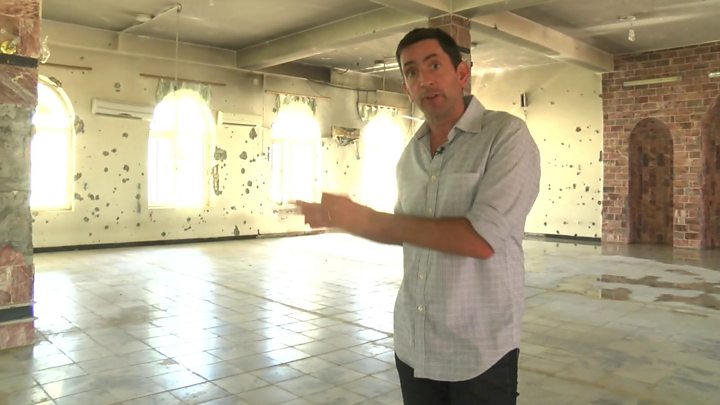
When announcing the start of their major spring offensive last month, the Taliban said their main focus would be foreign forces, targeting them with a mix of conventional, guerrilla, insider and suicide attacks.
The US has about 8,400 troops in Afghanistan, with another 5,000 from Nato allies.
The Pentagon has reportedly pressed President Donald Trump to send thousands more troops back to the country to try to counter gains by the Taliban. More than a third of the country is now said to be outside Afghan government control.
A Taliban attack on an Afghan army training compound in the northern city of Mazar-e Sharif last month killed at least 135 soldiers, and led to the resignation of the defence minister and army chief of staff.
